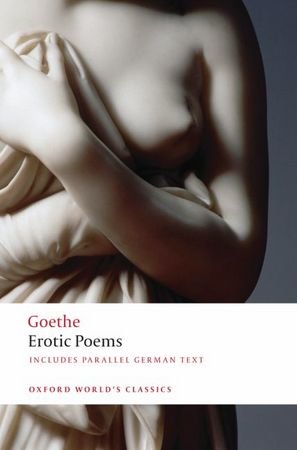`a world without love would be no world'
Elegy II
This bilingual edition of Goethe's erotic poems contains the Roman Elegies (1789), The Diary (1810), and a selection from the Venetian Epigrams of 1790.
Editorial censorship has long obscured the true form and content of the Elegies, which were inspired by Goethe's sexual liberation in Italy and his love for the woman he took as his unofficial wife on his return to Germany.They are here presented as Goethe boldly conceived them together with the long-surpressed narrative poem known as The Diary. Superficially the story of a failed sexual adventure by a man of 60, at another level this is a profound study of the psychology of desire and the nature of fidelity, as well as being one of the most beautiful and good-humoured poems in the German language. Completing the edition is a selection from Goethe's more light-hearted and much censored cycle of erotica, the Venetian Epigrams. David Luke's translations do full justice to Goethe's aim of liberating German poetry and restoring sexual love to its central position in human life. Hans Vaget's fine introduction provides the background to these poems, as well as showing some of the profound and little-known connections between them.
Johann Wolfgang Goethe was born in 1749, the son of a well-to-do citizen of Frankfurt. In the early 1770's he was the dominating figure of the German literary revival, his tragic novel Werther bringing him international fame. In 1755 he became a minister of state and director of the court theatre and in the 1790's he and his younger contemporary Schiller were the joint architects of Weimar Classicism, the central phase of German literary culture. Faust, written at various stages of his life and in a variety of styles, became a constantly enlarged repository of his personal wisdom and his creative energies never ceased to take new forms. In 1806 he married Christiane Vulpious, having lived with her for eighteen years. He died in 1832.
ABOUT THE SERIES: For over 100 years Oxford World's Classics has made available the widest range of literature from around the globe. Each affordable volume reflects Oxford's commitment to scholarship, providing the most accurate text plus a wealth of other valuable features, including expert introductions by leading authorities, helpful notes to clarify the text, up-to-date bibliographies for further study, and much more.


